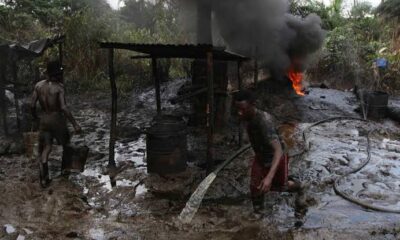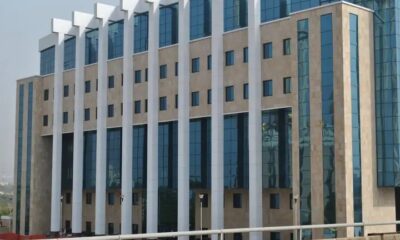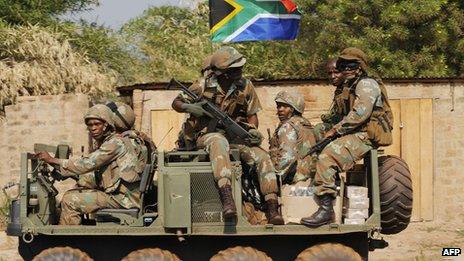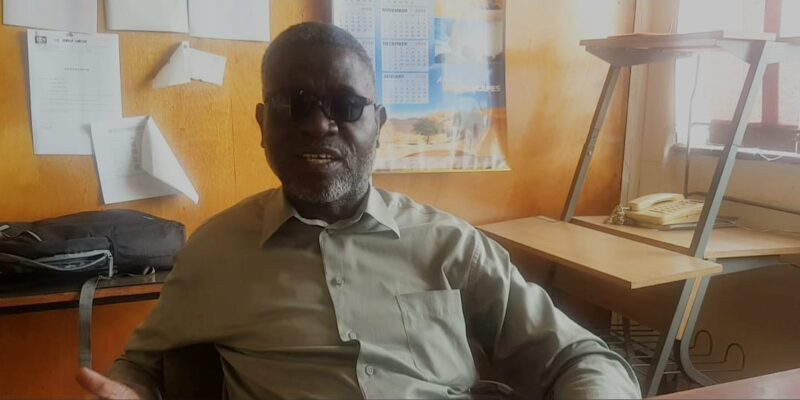Abuja, Nigeria’s seat of governance, was barely roaring to life Tuesday morning when the country was jolted with news of a blockade of the National Assembly by operatives of the Department of State Security (DSS).
The men, fully clad in combat wears and clutching assault rifles, stood menacingly, and held their grounds while stranded lawmakers fretted as they were denied entry to their offices. Only one of the masked men managed to utter, ‘Orders from above’ as reason for the stand-off.
The embarrassing incident was captured on live television.
The day before had offered an inkling into what would transpire. Senate President Bukola Saraki had informed that, in response to demands by the Buhari administration, the leadership of the National Assembly would meet Tuesday to consider some matters of urgent national interest.
The lawmakers had been on recess and were hoping to return to legislative duties late September. Among the issues that required the attention of the legislature were requests by the Executives for funding of the country’s electoral commission, INEC, and a supplementary budget for 2018.
The vacation itself had been hurriedly put together. It came almost minutes after some 52 lawmakers from both the Senate and House of Representatives upset the nation’s power structure by defecting from the ruling All Progressives Congress (APC) to the main opposition party, Peoples Democratic Party (PDP).
Critics have argued that the vacation was forced to prevent the Presidency and the ruling party from contemplating an immediate response. The handicap was not to last for long. Plot to undo Saraki, who himself had joined the defection gale and become leader of the camp, was activated clandestinely.
The Chairman of the ruling party, Adams Oshiomhole, fired the first shot, calling on Saraki to ‘honorably’ relinquish the ‘crown’. Other members of APC were not as diplomatic and made veiled references to impeachment plans, insisting that it ran against common norm and convention for a minority party to produce the leadership of the legislature.
Monday night had seen both parties building scenarios on what the opposing camp could be working on. While the APC feared PDP could embarrass the Presidency with an impeachment move, the latter was almost certain that the Senate President was going to be removed.
By Tuesday, mutual suspicions had run so deep. This was not helped by confirmed reports of planned defection of the Minority Leader, Godswill Akpabio, from PDP to APC.
Speculations had been rife that Akpabio was being positioned to take over the position of the Senate President.
The drama of Tuesday reached a climax when the bunch of APC legislators boycotted the meeting called by the Senate President, Saraki, opting instead to hold a caucus assembly elsewhere in the nation’s capital. While they retreated, their PDP counterparts were left to confront the siege by DSS operatives, spurring speculations that the Presidency was remotely linked to the ugly scenes that had played out.
With uproar from the media, and global attention turned to Nigeria, attempts to breach the constitution caved in. The platoon of secret policemen were quickly withdrawn, leaving Acting President Yemi Osinbajo to tackle what many have now described as an assault on Nigeria’s democracy.
Osinbajo’s immediate move to mange the image disaster was to order the sack and arrest of the Director-General of DSS, Lawal Daura, who had been fingered as the unseen hand in the Tuesday fiasco that brought the country so much shame.
In a terse statement made via his twitter handle, Osinbajo’s media aide, Laolu Akande, said, “AgP has directed the termination of the appointment of the DG of DSS Lawal Musa Daura.
“Mr Daura has been directed to handover to the most senior officer of the State Security Service until further notice”
He added, “the unlawful act which was done without the knowledge of the Presidency is condemnable and completely unacceptable.
“By this statement, Professor Osinbajo is consequently assuring Nigerians that all persons within the law enforcement apparatus who participated in this travesty will be identified and subjected to appropriate disciplinary action”.
Many have hailed Osinbajo’s initiative but not a few are worried that he may be ruffling some feathers given that the sacked Daura is not just an appointee of incumbent President Muhammadu Buhari but also a very close kinsman.
Read Also: Rising tension in Ethiopia; Regional leader arrested, Internet shut down
While Buhari is expected to be back from vacation in a couple days, his media aide, Femi Adesina, addressing the press on Wednesday said, “the Presidency is one”, in obvious reference to insinuations that Osinbajo may not have secured his principal’s not before firing his appointee.
Analysts argue that the full import of Daura’s sack can only be felt if Buhari returns to office and sustains the Vice President’s effort at enforcing constitutionalism and rule of law.
The battle against impunity remains a huge challenge. Buhari will resume from leave to meet the case of Benue and Akwa Ibom States whose accounts have been frozen by the anti-graft agency, Economic and Financial Crimes Commission (EFCC).
Close watchers believe that the dilemma of both states may not be far from the fact they had been caught up in the defection saga.
APC and PDP continue to trade blames over the National Assembly fracas, with each side accusing the other of recruiting the secret police in pursuit of party agenda.

 Culture2 days ago
Culture2 days ago
 Tech2 days ago
Tech2 days ago
 Metro1 day ago
Metro1 day ago
 Sports24 hours ago
Sports24 hours ago























